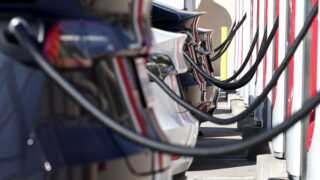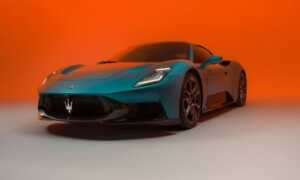Share via: Delhi government aims to have a wider and comprehensive public consultation about the draft EV Policy before its implementation. …Read More The Delhi government aims to have a wider and comprehensive public consultation about the draft EV Policy before its implementation. (Getty Images via AFP) Get Launch Updates on Notify me The Delhi government has decided to extend the current Delhi EV Policy until March 31, 2026, as it aims to facilitate wider public consultation for the draft of the new policy. Delhi Transport Minister Pankaj Singh on Tuesday announced that the draft of the new Delhi EV Policy will undergo wider public consultation, which is expected to take time, resulting in an extension of the current EV Policy. PTI quoted Singh saying that the policy extension was among the matters listed for Tuesday’s Cabinet meeting, and it has been decided to extend the same. “The current Electric Vehicle (EV) Policy has been extended until March 31, 2026, or until a new policy is approved, whichever is earlier,” Singh reportedly said to the news agency. The minister said that the move aims to facilitate comprehensive consultations with all the relevant stakeholders, including citizens, industry experts, private organisations, and environmental groups. During this extended period, key provisions of the Delhi EV Policy will be discussed, including strengthening the electric vehicle charging infrastructure, reviewing subsidies and waivers to boost EV adoption, developing robust systems for safe e-waste and battery disposal, and clearly defining the role of the public and private sectors in advancing the electric mobility ecosystem. Singh added that given Delhi’s air pollution crisis, this participatory approach is seen as a crucial step towards framing a more effective, inclusive, and forward-looking EV policy that promotes clean and sustainable urban transport. He also added that the government has urged active public participation in the consultation process to collectively shape the future of electric mobility in the capital. The current Delhi EV Policy was first introduced in 2020. It lapsed in August 2023, but since then, it has been extended multiple times. The Delhi government had discussed the draft policy on April 15 but deferred the approval of key proposals, including the phasing out of CNG auto-rickshaws and fossil fuel-based two-wheelers within two years. The draft policy envisions 100 per cent electric vehicle adoption in the national capital over the next three years. Delhi govt plans to retrofit BS4 trucks to BS6 compatibilityIn view of the approaching ban on the entry of BS4 trucks in the national capital, the Delhi government is going to invite innovative ideas for retrofitting of these commercial vehicles to meet BS6 compliance, said Delhi’s Environment Minister Manjinder Singh Sirsa on Tuesday. The minister has directed the Delhi Pollution Control Committee (DPCC) to hold an innovation challenge to find technological solutions to the issue. PTI has reported that the winning entry, whose technology will be used by the government, will be awarded a prize money of ₹25 to ₹50 lakh. The innovation challenge will be held in three stages — in the first stage, the proposal will be evaluated based on the paper submitted; the second stage will be focused on carrying out an exhaustive study of the proposal, following which ₹5 lakh will be given for testing the technology as part of the third stage. The certification will be given by The National Physical Laboratory (NPL). Sirsa said that if commercial vehicles won’t be allowed to enter Delhi, it would lead to a crisis. “We will hold this challenge to invite solutions for retrofitting of BS4 trucks,” he reportedly said. The minister also added that this will also help in curbing pollution in the national capital. The challenge will also involve finding solutions to reduce emissions from BS4-compliant vehicles. “The innovation challenge will be focused on identifying and promoting low-cost, easy-to-maintain and effective technological solutions capable of reducing/absorbing PM 2.5 and PM 10 emissions of at least twice the amount emitted from BS-IV vehicles operating,” the minister said. This move from the Delhi government comes at a time when, from November 1 this year, only BS6, CNG or electric commercial vehicles will be allowed to enter the city. Get insights into Upcoming Cars In India, Electric Vehicles, Upcoming Bikes in India and cutting-edge technology transforming the automotive landscape. First Published Date: 23 Jul 2025, 08:02 am IST
Source: hindustantimes.com






